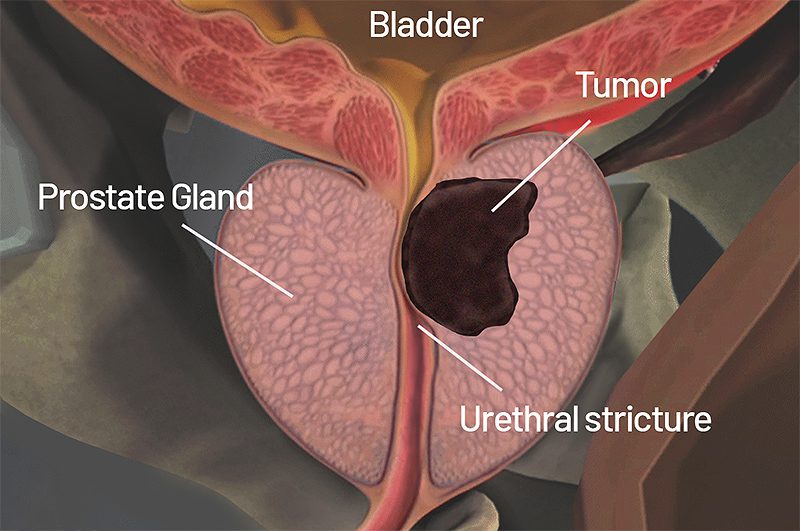Some of the links in this article are "affiliate links", a link with a special tracking code. This means if you click on an affiliate link and purchase the item, we will receive an affiliate commission.
The price of the item is the same whether it is an affiliate link or not. Regardless, we only recommend products or services we believe will add value to our readers.
By using the affiliate links, you are helping support our Website, and we genuinely appreciate your support.
Disclaimer: This article is for informational purposes only. Please consult a qualified healthcare professional for authoritative medical advice, diagnosis, or treatment.
What is Prostate Cancer?
Prostate cancer begins in the prostate, a small gland in the male reproductive system that helps produce semen. Located just below the bladder, the prostate can develop cancerous growths that may remain localized or spread to other areas of the body.
Prostate cancer is one of the most common cancers in men. Fortunately, it often grows slowly and is typically found in its early stages, when it’s easier to treat. Many individuals diagnosed early live long, healthy lives without aggressive treatment.
Common Symptoms
Early-stage prostate cancer may not show symptoms. When symptoms do appear, they can include:
- Blood in urine or semen
- Frequent or difficult urination
- Waking up often to urinate at night
- Weak or interrupted urine stream
- Pain in the back, hips, or pelvis
- Erectile dysfunction
- Unexplained weight loss or fatigue
Advanced prostate cancer may lead to more severe complications such as bone pain or weakness in the limbs.
Risk Factors
Some of the main risk factors for developing prostate cancer include:
- Age: Most common in men over 50
- Race: Higher risk in Black men, often more aggressive
- Family History: A close relative with prostate cancer increases your risk
- Genetic Mutations: BRCA1 or BRCA2 gene mutations
- Obesity and Smoking: May increase risk or affect cancer outcomes
Diagnosis & Treatment Options
Prostate cancer is typically diagnosed through a PSA (prostate-specific antigen) blood test or a digital rectal exam (DRE). A biopsy confirms the diagnosis.
Treatment varies depending on the stage and aggressiveness of the cancer:
- Active Surveillance: Monitoring without immediate treatment
- Surgery: Removal of the prostate (prostatectomy)
- Radiation Therapy: Targeted radiation to destroy cancer cells
- Hormone Therapy: Reducing testosterone to slow cancer growth
- Chemotherapy or Immunotherapy: For advanced or spreading cancers
Complications
Untreated or advanced prostate cancer may lead to:
- Incontinence (urinary leakage)
- Erectile dysfunction
- Cancer spread (metastasis), especially to bones
- Psychological impact such as anxiety or depression
Prevention Tips
While there is no guaranteed way to prevent prostate cancer, you can reduce risk by:
- Maintaining a healthy diet: Emphasize fruits, vegetables, and whole grains
- Exercising regularly
- Maintaining a healthy weight
- Avoiding smoking
- Discussing preventive medications (like finasteride or dutasteride) with your doctor if at high risk
Final Thoughts
Prostate cancer affects millions globally, but with early detection and appropriate care, the prognosis is often positive. If you’re experiencing any unusual symptoms or have risk factors, consult a healthcare provider promptly.
This article is published in ABAB Magazine for educational purposes only. Always seek the advice of your physician or a certified medical expert for diagnosis or treatment related to prostate health.




